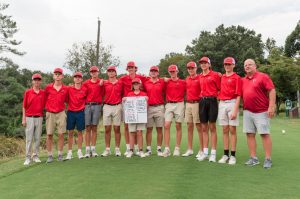Instructional period shifts to advisory
February 22, 2013
The instructional period became a regular part of the school schedule last term. Designed to be a time to help students who struggle in an SOL class or who just need help, these periods were rotated between blocks. This term, the instructional period will start again in early March and take place during a 45 minute extended advisory on Wednesdays so students that participate don’t miss any class work.
“It was confusing; sometimes people weren’t sure which block it was, and it could never be third.” Principal Roger Sites said about the change to advisory. “We felt we had to tweak it.”
During the instructional period, teachers were not supposed to teach so that remediating students would not miss valuable instruction. Students that did not participate in the period were to use the time as a study hall. Some students made up quizzes and tests or worked on filling out college applications. This time also gave clubs more opportunity to meet.
“We’ve got the data that shows it pays off,” Sites said. “It’s useful for a wide variety of student needs.”
However, some parents and teachers had mixed feelings about the floating instructional period.
“I like the idea,” math teacher Paul Reynolds said. “[Last term was] just not the best utilization; kids didn’t want to miss a lab or something, so they didn’t come.”
Junior Dominque Robinson used the instructional period for math remediation.
“It helped,” Robinson said. “They could have made it more active and interactive, though. We weren’t going to the board or anything; we just kind of sat there.”
Although most students that went to remediation felt the period was useful, many were not excited about having to go.
“People there didn’t care,” sophomore Tia Jackson said. “They took it as a get-out-of-class free card to sleep and talk to friends.”
Some teachers are worried that having the instructional period during advisory will not be time well spent since teachers cannot design enrichment materials for students they don’t have in class.
“We won’t know until we try,” English teacher Robin Moore said. “But I would prefer [the period] elsewhere. I’m not going to have students I can work with.”
The current plan for an instructional period during advisory is set in motion.
“It allows us an open period of time,” Reynolds said. “We get to reach students that we normally cannot reach.”






